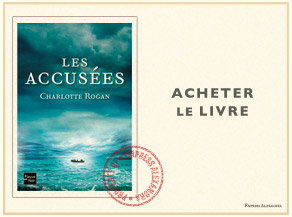Publisher’s Summary
For Maggie Rayburn—wife, mother, and long-time secretary at a munitions plant—life is pleasant, predictable, and, she assumes, secure. But when she finds proof of a high-level cover-up on her boss’s desk, she impulsively takes it, an act that turns her world, and her worldview, upside down. Propelled by a desire to do good—and also by a newfound taste for excitement—Maggie starts to see injustice everywhere. Soon her bottom drawer is filled with what she calls “evidence,” her small town has turned against her, and she must decide how far she will go for the truth.
For Penn Sinclair—Army Captain, Ivy League graduate, and reluctant heir to his family’s fortune—a hasty decision has disastrous results. Home from Iraq and eager to atone, he reunites with three survivors to expose the truth about the war. They launch a website that soon has people talking, but the more they expose, the cloudier their mission becomes.
Now and Again is a blazingly original novel about the interconnectedness of lives, the limits of knowledge, and the consequences of doing the right thing.
Advance praise for Now & Again
“Now and Again is breathtaking in its scope and insight. This is America from the ground up, full of ordinary people trying to make sense of their lives, driven by that brand of frontier idealism that might yet be our last best hope.”
—Patrick Flanery, author of Absolution and I Am No One.
“With consummate command of narrative, Charlotte Rogan nimbly brings together whistleblowers and soldiers in a damning—and page-turning—critique of America’s military-industrial complex and its massive amount of collateral damage. It’s the novel we deserve for the war we didn’t.”
— Teddy Wayne, author of The Love Song of Jonny Valentine and Kapitoil
Excerpt from Now & Again
Maggie Rayburn had just come from eating birthday cake in the employees’ lunchroom when a document sitting in plain sight on her boss’s desk caught her eye. It was one o’clock, and a shaft of late-winter sun was stabbing through the plate-glass window behind the desk, blinding her enough so that at first she wasn’t sure exactly what was signified by the thick red border on the document’s cover or by the stern capital letters or the string of acronyms and slashes. Curiosity—was it a useful trait or a dangerous one? But who isn’t curious, she thought as she lifted the cover and peered inside: Discredit the doctors, she read. Flood the system with contradictory reports.
Footsteps sounded in the corridor, causing a shiver to prickle her neck. She glanced out the window and cocked her head to listen. It was getting brighter out—or no, it wasn’t really, but now and then a band of light cut through the pervasive cloud cover and illuminated the stretch of farmland she had been looking at for what seemed like a thousand years. It was gray and frozen now, but in a few more months it would burst with life, aided by the antlike tractors that crawled along the corn rows and the spindly wheeled irrigation contraption and, a few months later, the big green harvesting machines. And in the distance…
But she didn’t have time to think about the distance, where the corn gave way to wheat and where a phalanx of oil rigs were drilling into the sub-shelf of the Arkoma Basin, and beyond the oil rigs, Oklahoma City, and beyond that…
Beyond that, an entire world she had never seen.
The footsteps were coming closer, pausing—surely they belonged to Mr. Winslow, who would have finished up his meeting with the army brass by now—and anyway, there was never time. There were documents to be typed and filed, telephones to be answered, an outfit to be chosen for the special birthday dinner Lyle was planning for her—in secret, he thought, but Lyle was an open book. The more furtive his movements, the easier it was to guess what he was up to. All of the hours in the day were spoken for!
Unless she made time. Unless she announced: “Thursday evening you boys are on your own” and went to get her nails done or meet up with True and Misty for a girls’ night out.
But today something was different. Whatever it was caused Maggie’s heart to clench with a dangerous possibility, and before she knew what she was doing, the document was in her hands, and then it was tucked up inside the baggy sweater Lyle and Will had given her that morning for her birthday—Lyle, who had no fashion sense! Will, who wanted her to be presentable, but not the kind of mother his friends eyed from under the brims of their baseball caps. Where had the years gone? She might as well slap a used-up mother sign on her forehead if she was going to wear a sweater like that.
But as she stood in a stray shaft of February sunlight, watching the distant oil rigs pump their greasy dollars out of the ground, she wondered if certain seemingly indelible aspects of her life and personality might change. If Lyle might become her accomplice in whatever lay in wait for her as the earth made its lonely way around the sun and Will spun off into ever-farther orbits and she took another step along the Path to Becoming, which was something she had read about in a magazine she had bought herself as a birthday treat just, coincidentally, the day before.
Reviews for Now & Again
“In this stunning novel…seemingly unrelated story threads are ingeniously woven into an explosive whole.”
—Library Journal, starred review
“Sprawling and vibrant”
—The Washington Post
“Rogan’s new novel takes place on land, but readers will be delighted to know that it is no less exciting than her first.”
—The Christian Science Monitor
“Dazzling layering of different people and different stories and of the leaps their minds make as they learn to open their eyes”
—The Sunday Times
“Rogan’s debut novel, The Lifeboat, was a suspenseful, psychological survival story, and her new novel is just as harrowing, and even more complex.”
—The National Book Review
“All the ingredients of a tense thriller, but with a domestic slant that got my heart involved.”
—Red Magazine
“As in The Lifeboat, Rogan has an excellent grip of the necessary satisfactions of plot, and of both structure and character… She confidently and swiftly builds a complex, three-dimensional lattice of allegiance and affect that stretches from the US to Iraq.”
—The Guardian
Honors and Lists
Parade Magazine: 10 Books Mom Will Love
Red Magazine: Best Books to Read This May
San Diego Magazine: 6 Books to Read in April
B&N Reads: April’s Best New Fiction
DuJour: On the Shelf: What to Read This April
Hello Giggles: 12 new books by women we can’t wait to read this April
The Huffington Post: The Most Anticipated Books For 2016
Literary Hub: The Buzz Books Spring/Summer Preview
The Millions: Most Anticipated: The Great 2016 Book Preview
Brooklyn Magazine: 101 Books to Read This Year
Bookpage: 2016 Preview Selection
Reading Group Guide for Now and Again
The below text from The Lifeboat is also available for download as a PDF here.
WARNING: Some questions contain SPOILERS.
- Is Now and Again a novel about war or is it mostly about something else?
- The story is told from 12 different points of view. Why do you think the author made this stylistic choice?
- Lyle reads in How To Win Friends And Influence People that a person usually has two reasons for doing something: one that sounds good and the real one.
- Do you agree with this, or is it overly cynical?
- Why would Maggie say she took the top-secret document from her boss’s desk? Is this the real reason?
- Do the soldiers start the website mostly for selfish reasons or mostly for altruistic ones? What does this say about human motivation?
- The people of Red Bud depend on the munitions plant and the prison for their jobs. Are better lives for some people purchased at the expense of worse lives for others? If so, can anything be done about it?
- Were the various characters qualified to make some of the decisions they made? If not, what would have qualified them—did they need more information or something else? What does this say about democracy? About government secrecy? How much information does a person need before he or she can act?
- Maggie leaves home to make a difference in the larger world. Captain Sinclair lets his desire to build a school affect his decision about the convoy.
- Where does a person’s first duty lie?
- Can the concept of duty be used to stop people from trying to make a difference in the world?
- The Professor tells Sinclair that “man is warlike.”
- Do you agree, and what does your answer say about the possibility of world peace?
- Colonel Falwell says, “If there’s nothing worth fighting for, there’s nothing worth living for either.” Do you agree with this statement, and does it change your answer to the question above?
- Chapter 12.1 describes Penn’s second meeting with the professor, who declares there is only one meaningful philosophical question, but he is interrupted before he can say what it is. How do you think the professor meant to complete this sentence: “It is whether it is possible to be both moral and…”
- The novel is told in two parallel plot lines.
- Why did the author keep the two stories mostly separate?
- Only Dolly and Will overlap in both stories. Why?
- How is the town of Red Bud like the neighborhood in Trenton where the soldiers settle? How is it different? Does small town life empower or repress its citizens, or is it some combination of the two?
- While the soldiers are searching for truth, Maggie sets off on a quest for justice. Tula wants to make a difference based on her belief in purity.
- Are big ideals within our reach, or is this sort of quest hopelessly Quixotic? What does this say about idealism?
- What does Sandra Day O’Connor symbolize?
- How do Tula’s ideas about purity change over the course of the book?
- What does the novel say about the American dream? Is it likely that characters like Joe Kelly and Tula Santos can escape the circumstances of their birth?
- What do the windows in the prison basement symbolize? What about the broken ladders that lead to them?
- What did Louise represent for the captain? Why does he decide to go back to Iraq?
- What role does journalism play in the book? How does the chorus of voices at the beginning of each chapter fit with this?
- The last chapter acts as a sort of epilogue to the book.



